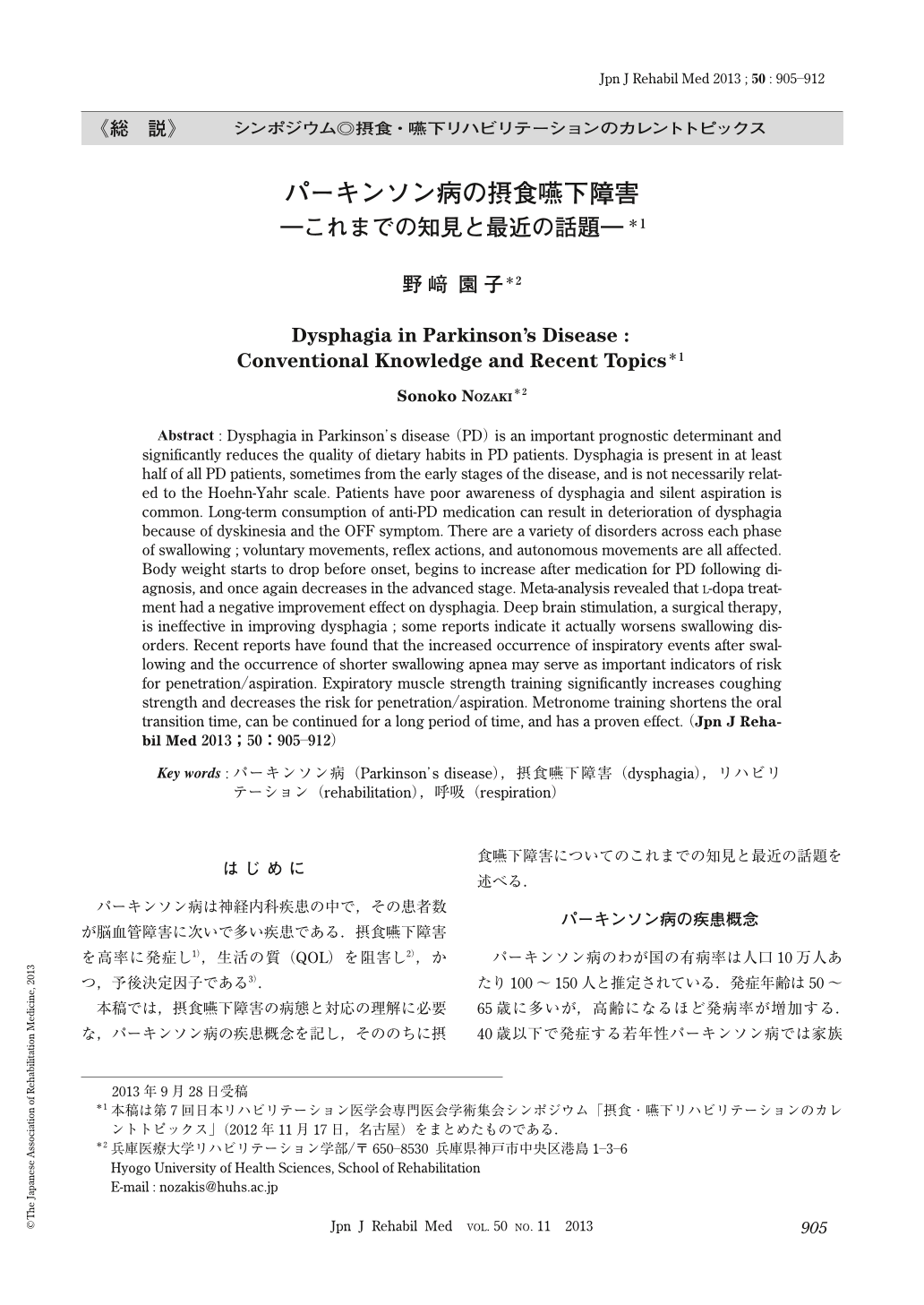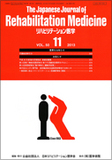Japanese
English
- 販売していません
- Abstract 文献概要
- 1ページ目 Look Inside
- 参考文献 Reference
はじめに
パーキンソン病は神経内科疾患の中で,その患者数が脳血管障害に次いで多い疾患である.摂食嚥下障害を高率に発症し1),生活の質(QOL)を阻害し2),かつ,予後決定因子である3).
本稿では,摂食嚥下障害の病態と対応の理解に必要な,パーキンソン病の疾患概念を記し,そののちに摂食嚥下障害についてのこれまでの知見と最近の話題を述べる.
Abstract : Dysphagia in Parkinson's disease (PD) is an important prognostic determinant and significantly reduces the quality of dietary habits in PD patients. Dysphagia is present in at least half of all PD patients, sometimes from the early stages of the disease, and is not necessarily related to the Hoehn-Yahr scale. Patients have poor awareness of dysphagia and silent aspiration is common. Long-term consumption of anti-PD medication can result in deterioration of dysphagia because of dyskinesia and the OFF symptom. There are a variety of disorders across each phase of swallowing ; voluntary movements, reflex actions, and autonomous movements are all affected. Body weight starts to drop before onset, begins to increase after medication for PD following diagnosis, and once again decreases in the advanced stage. Meta-analysis revealed that L-dopa treatment had a negative improvement effect on dysphagia. Deep brain stimulation, a surgical therapy, is ineffective in improving dysphagia ; some reports indicate it actually worsens swallowing dis- orders. Recent reports have found that the increased occurrence of inspiratory events after swallowing and the occurrence of shorter swallowing apnea may serve as important indicators of risk for penetration/aspiration. Expiratory muscle strength training significantly increases coughing strength and decreases the risk for penetration/aspiration. Metronome training shortens the oral transition time, can be continued for a long period of time, and has a proven effect.

Copyright © 2013, The Japanese Association of Rehabilitation Medicine. All rights reserved.


